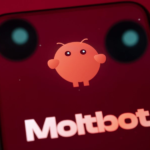You’ve probably seen the headlines. “AI job cuts.” “Automation replacing humans.” Some CEOs are even proud of it.
Not only is this short-sighted, it’s fundamentally bad business. The companies cutting people today in the name of AI will be the ones playing catch-up tomorrow.
There is no doubt that AI is excellent at doing more with less. It speeds up processes, cuts down repetitive work, and buys back time. But AI on its own cannot create the next generation of products and services.
The businesses that win in the long term are the ones that innovate. That create new products. That reimagine how things should work, and find radical breakthroughs that impress their customers in new ways.
And that kind of creative thinking still only comes from people. Ultimately, it comes down to this: AI doesn’t invent. It recycles. It’s trained on other people’s ideas, imitates patterns, and doesn’t jump the curve.
If your strategy is to lay off the people who could create the next big thing—good luck. You might run a tighter ship, at least in the short term, but don’t be surprised when your product roadmap starts to fall flat.
So, if you’re leading a large business, what should you do instead? Keep hold of your talent. Tell your team to use the extra time they have freed up with AI to innovate. Give your people the headroom to think.
Imagine if those same people had been made redundant the quarter before. That’s exactly what is happening right now.
Too many leaders are taking the efficiency gains of AI and passing them straight to the bottom line. They’re juicing short-term profits and calling it innovation.
And that’s before you even factor in the risk that many of these so-called “efficiencies” may never materialize. For all the AI hype, humanity doesn’t have the greatest track record when it comes to predicting the future. If the magazines of the 1950s and 1960s were right, we’d be commuting to work with jet packs and cleaning our homes with nuclear-powered hoovers by now.
The same might apply here. Embedding AI into real-world business processes is hard, especially when it comes to sophisticated knowledge work. There are technical limitations, privacy minefields, and the unsolved problem of how to fix or debug AI agents when they go off course.
So, there’s every chance that some of the companies laying off staff today will find themselves quietly rehiring in a few years, once they realize the tech isn’t as capable as they thought.
Taken together, the winners won’t be the companies that cut deepest. They’ll be the ones that keep the right people, give them space, and leverage AI to push their creativity even further.
AI is rewriting the rules of business. What matters now is how you choose to use it. Where one company sees an opportunity to cut headcount, another sees a chance to build something new.
Only one of those will still be leading the market in five years.
The opinions expressed in Fortune.com commentary pieces are solely the views of their authors and do not necessarily reflect the opinions and beliefs of Fortune.
Read more:









